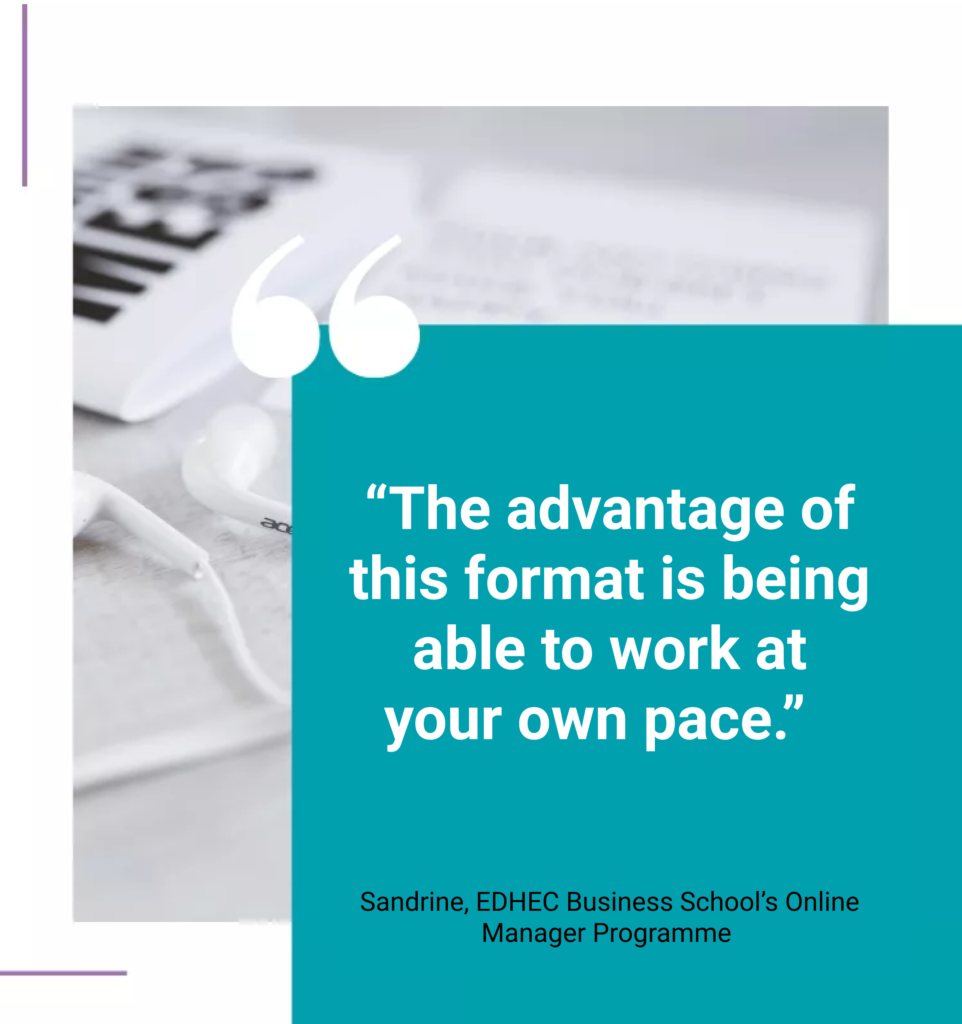What are your true passions? Do you feel fully appreciated by your company? Could you have a better position? If these questions have been on your mind, it may be time for a change. Going back to education while working full time is one of the best options for refreshing your career at any age, from 30 to 50.

Did you know that 74% of professionals plan to take an e-learning diploma course within the next two years (in french : Opinion Way survey for EDHEC)? Today, adult distance learning is conceived to meet the needs of active professionals and executives, with content designed to allow participants to:
- gain confidence in their current positions,
- acquire new skills,
- develop professionally,
- or even retrain for a new career.
Going back to education at 40 involves an investment of both time and energy. Lets explore the ways in which it may be easier than you think, the opportunities it can unlock, and practical tips.

Common worries about going back to education
#1 Do I have time?
Setting aside time for your continued learning is an essential balancing act. Some businesses will allow you to count training days as working time. Alternatively, distance learning allows you the freedom to work in the evenings or at the weekend at your own pace. Many of us know an executive colleague with a young family who has risen to the challenge, securing a sought-after promotion. Why not your turn next?
#2 Wont it involve a lot of complicated steps?
Going back to education at 40 is no more complicated than at 25! In the era of digitalisation, processes have been simplified and training organisations respond quickly by e-mail, while the growing number of 100% online courses means that travel doesnt have to be an issue.
#3 Is this really for me?
Dont underestimate your learning potential! From managing a team to integrating new equipment, you have acquired expertise, productivity, and decision-making skills which you didnt have at 20.
Professional training is also very different from primary education, focussing on practical examples and validating your professional experience. And if you are worried that you may find yourself surrounded by much younger students, rest assured that participants average age is 38 (for EDHEC Online management training courses).



